For many pivotal industries worldwide, digital marketing and WordPress development, including white label WordPress development, reign supreme. Knowing these fields by heart is a must. To save you the lengthy explanations, let’s demonstrate the power of digital marketing and the impact of WordPress development in practice.
A lot goes on the internet in 60 seconds. An internet minute makes for 3.8 million Google searches, 694,444 hours of Netflix, 4.5 million YouTube videos watched, and 41.6 million messages sent. In newsletter and Tinder terms, that equals 1.4 million swipes and 188 million emails sent, respectively.
Numbers and statistics don’t lie - digital marketing works for a bunch of viable industries. Despite the efforts to keep traditional marketing afloat, the truth is, most customers would rather check their Instagram than turn on the TV.
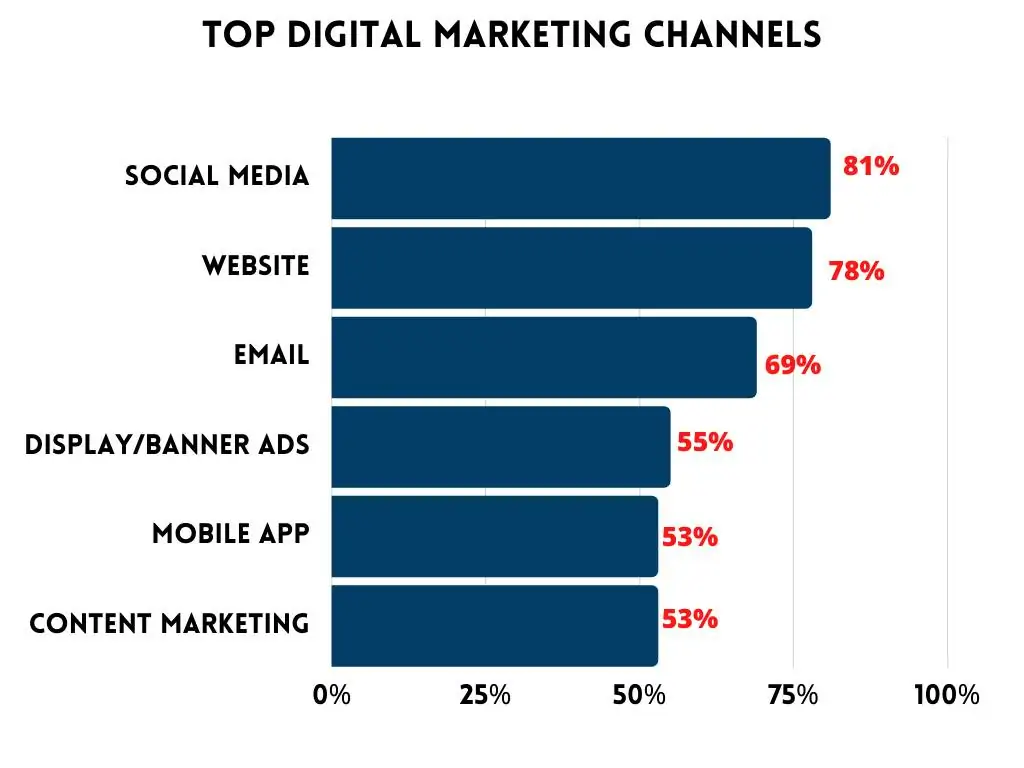
Below, let’s have a closer look at both the trending digital marketing tools as well as the top 8 industries that benefit the most from digital marketing.
What is Digital Marketing?
Digital marketing is an umbrella term that incorporates various key tools that help advertise your brand across smart devices and online on a global level. Otherwise known as the evolution of traditional marketing, there are many benefits to trusting digital marketing with scaling your business.
For all it’s worth, a decade ago, the typical morning started with the turn of TV; yet, nowadays, social media killed the video star, and things have slowly progressed to platforms like Instagram and Facebook. Mobile devices offer it all these days - the latest news, the best shopping sites, the best gaming nooks, and the utmost dating sites, to name a few.
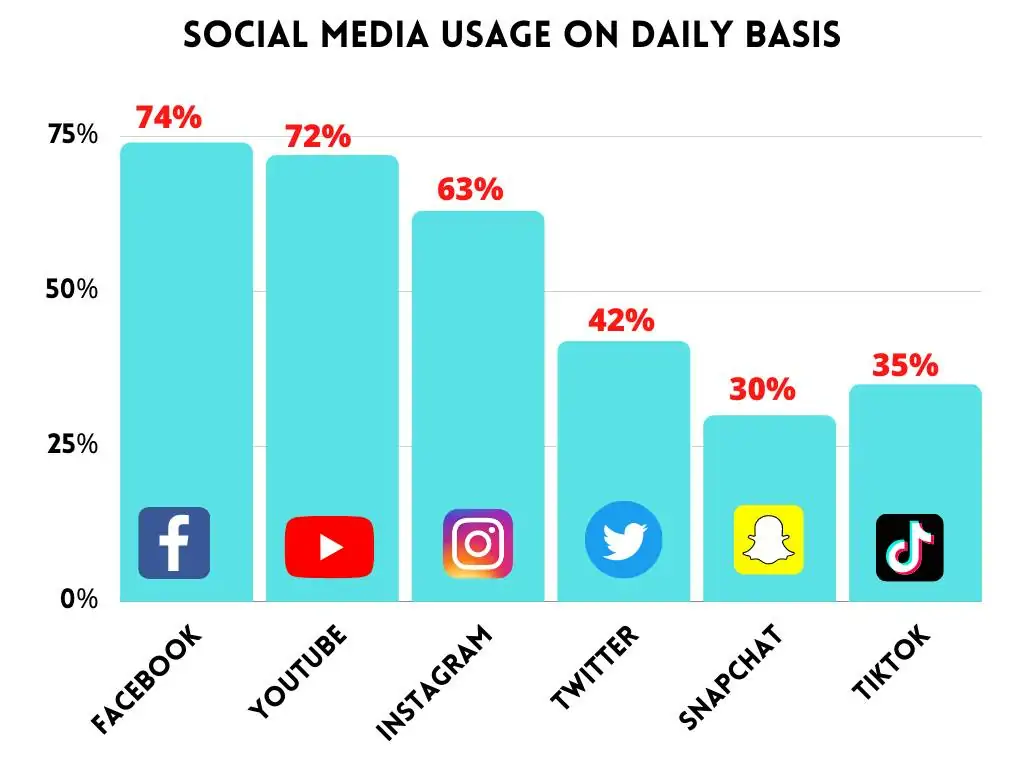
Smartphones hold entire worlds in a single device, which naturally gives digital marketing room to play. By incorporating the rightful boost tools - SEO, content marketing, etc - digital marketing can practically put your brand in your designated audience’s hands - wherever they may be.
Old School vs. New School Marketing Benefits
The leverage digital marketing has over the traditional is its ability to learn customer behaviors as well as habits - all through real-time data. Thanks to digital marketing, companies and businesses can evaluate whether their marketing campaign is successful or in need of adjustment.
The key reason why digital marketing topped traditional marketing lies in the metrics. Marketing metrics is a beyond useful tool that allows digital marketers to measure the volume of visitors on their site, and their engagement with a variety of content - videos, blogs, updates, or else. In other words, metrics are essential in evaluating a business’s traffic or the lack thereof.
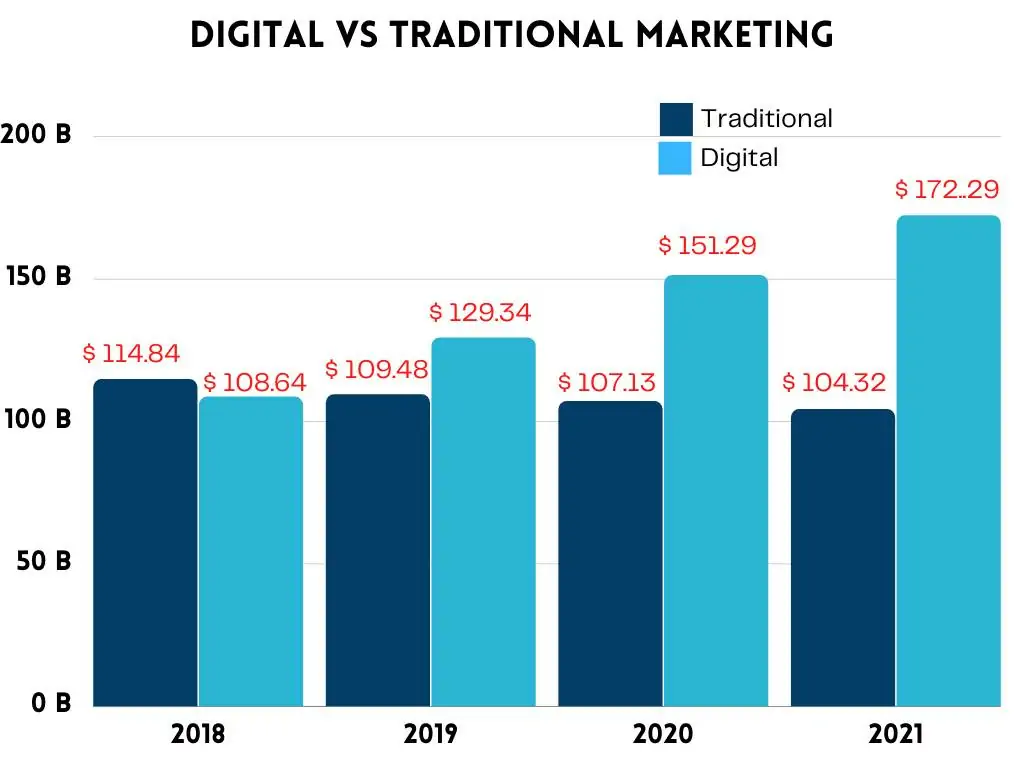
The second benefit of digital marketing is your ability to promote globally - not locally.
If you opt to promote your brand via traditional marketing strategies - whether through newspapers or billboards - word won’t spread farther than the locals. Digital marketing, on the other hand, can help target a potential customer audience - wherever in the world they may be.
Monitoring your target audience is yet another perk to using digital marketing. The way your visitors shop, the items they go for, as well as the interests in products and services they show online can all be used as a way to create a suited marketing strategy and send targeted ads to potential customers.
By comparing your visitors’ interests, ideal purchase times, and their shopping habits online, you can implement several digital marketing strategies to turn your monitoring to clean profits.
Digital Marketing Strategies That Elevate Your Business
Digital marketing strategies aim to promote a brand’s products before a target audience. They do so by using different channels - from live searches, socials, and websites to emails and mobile apps. These strategies enable faster communication in both the B2B and B2C markets. Digital marketing goals and metrics can also raise positive awareness of a brand, and help it build trust with potential clients.
To achieve all of the above and more, digital marketers use different techniques, some of which we list below.
Search Engine Optimization (SEO)
An SEO strategy optimizes your website to rank higher on Google searches. Essentially, it's a strategy used to increase your site’s organic traffic. This strategy operates by including specific keywords searched by potential customers - ones that also correspond to your product or service. In other words, digital marketers use searched keywords to further target their own search, which, if done right, will show on the very first Google page. SEO has changed drastically over the past few years, yet its objective stays the same - keywords and targeted strategies do the trick the fastest.
Pay Per Click
Digital marketers can drive traffic to your website with advertisements as well. However, this will require that you pay for every click a potential customer makes on your site ads. Such advertisements typically show in the midst of YouTube and Facebook videos, in-between Google searches, or as image ads.
Content Marketing
Content marketing strategies pay close attention to generating quality content that will raise awareness of your brand and help you build mutual trust with your potential clients. Digital marketers can increase awareness via content-rich blogs, videos, infographics, eBooks, or case studies, to name a few.
Social Media Marketing
When a brand aims to reach a larger audience, there’s no better way to do it than to showcase the brand across social media. Though pricier, digital marketers use social media as the main portal to a greater business market, where the entire world gathers to shop at the same time. To target a larger audience, digital marketers will incorporate short info-packed posts, catchy photos, as well as compelling videos that convey the kind of message your potential clientele wants to see.
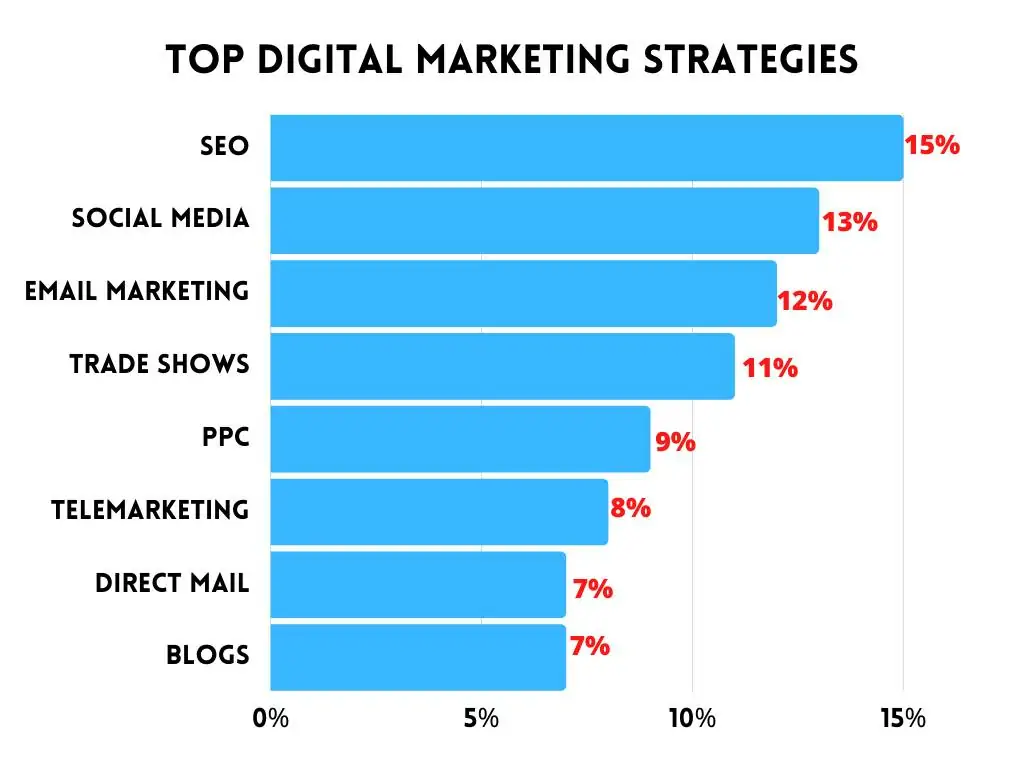
Email Marketing
Email marketing aka newsletter requires that one targets its brand audience through cleverly written and precise email content. The email marketing strategy comes in handy when formerly active customers have been inactive or laying low for a while.
Call it a reminder if you will, but emails are still a fabulous tactic to get in touch with a growing audience and in a less invasive manner. The newsletter can feature it all - your products or services, discounts and offers, weekly deals, and giveaways, or blog links that lead interested parties to your website.
Affiliate Marketing
Affiliate marketing is a type of digital marketing done by promoting a brand on your site for which you get a profit for every item sold. That means arranging a third party or an Affiliate to promote a brand on their blog or channel for a fee. That fee is usually generated by subscriptions or registrations.
Top 8 Industries that Benefit the Most from Digital Marketing
Not all digital marketing strategies are made the same. Therefore, not every industry can depend entirely on digital marketing, or at least, not on the same strategy tools.
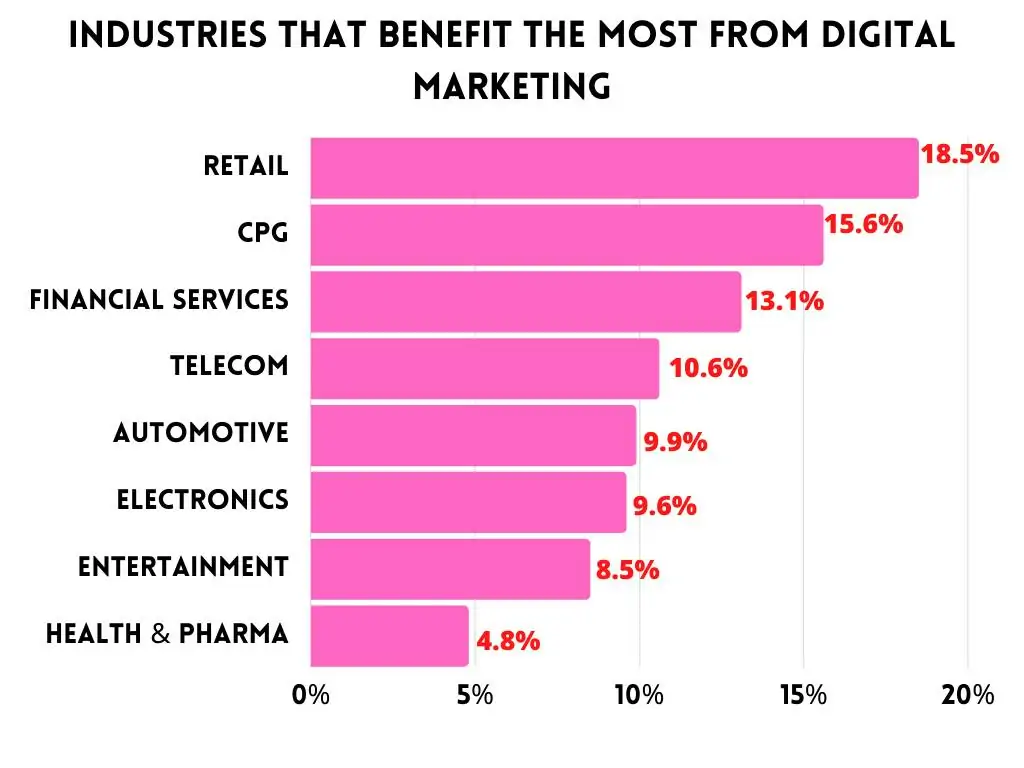
Read on to learn the top 8 industries that benefit the most from digital marketing.
The Marketing Industry
Advertisement companies make one of the industries that benefit the most from digital marketing. One because it is in high demand given the nature of the industry and two because it is ever-growing.
Prominent companies worldwide have all found their spot across social media platforms and actively rely on a variety of digital marketing tactics to scale their businesses. Even prior to but especially after the pandemic hit, going viral on socials has remained to be the utmost digital marketing trend for, well, marketers themselves.
Not just social media, though, the industry largely uses digital marketing to its advantage across newsletters, SEO implementation, and other relevant channels.
The Law Industry
The law industry is like no other. For one, it is designed in such a way that it builds trust and communication with your given audience. As expected, trustworthiness and reliability make the fundamental qualities for any legal entity- be it a lawyer, a judge, a solicitor, or else. Seeing how appreciated the law industry is, many companies have turned to the implementation of apt digital marketing strategies in promoting their brands.
This is one of the best industries for marketing strategy implementation and it’s all about content - quality assurance blogs, expert content, guides, and tutorials, you name it.
As the law industry is open to changes and updates, audiences who want to keep up with the latest news will find related content appealing, which will then put your business in fabulous light. And, to cement that trust, digital marketers might also incorporate testimonials, from former and current clients as vouchers for their quality.
Health Industry
Similar to the law industry, health practitioners can also reap the fruits of the digital marketing world. Here the strategy is similar to the law industry - informative and helpful blogs, detailed guides and cautions, and any type of relevant health content will do.
Another digital marketing strategy that works is enabling potential visitors information regarding a healthcare facility’s location, staff, resumes, working hours, online appointment scheduling, and more. By enabling visitors to gain access to all things health they need, they will trust your brand to be reliable and will stick with you for the long haul.
All in all, digital marketers cover the health industry with the power of content marketing and social media advertisement. During the pandemic, people in the thousands searched the internet for the best hospitals, package prices, and offerings, which gave the industry the chance to make the best of digital marketing.
The Food Industry
Much like social media, food has, too, unified people in a socializing manner. Therefore, it is only natural that the food industry will benefit from using digital marketing.
Businesses who deal in catering, creating food recipes, selling respective equipment or anything else food-related can trust various digital marketing means to scale their business. Most times, food marketing strategies include social media presence, written content, and especially video content that has an educational feel to it.
As visitors love to know all details surrounding a food brand, the more certified and legitimate you present yourself to be, the more efficient your digital marketing strategy will become.
The Education Industry
Gone are the days of schools, academies, and universities promoting their brands via newspapers, flyers, or pamphlets. Thanks to online marketing, students or parents can quickly type in the best educational platforms in their vicinity and find exactly what they are looking for, on or off-site.
To make for successful digital marketing goals and metrics, the education industry commonly uses SEO and content marketing as their lead strategies. Through them, all educational institutions can trace their number of visitors and the interest they show in their products or services.
The Automotive Industry
The automotive industry may be one of the rare ones that still resort to traditional marketing, mostly through TV ads, billboards, radio ads, and print. But, as every other industry has made its shift online, so did the vehicle industry. And, as it turns out, it can benefit quite a lot from the marvels of digital marketing.
Businesses in the automotive sector are now busy developing digital marketing campaigns to generate more high-quality prospects, both via paid and organic advertising.
With the ability to design different ads customized to segmented groups, industry producers find it easier to reach the desired audience and even sign online deals. With the heavy use of social media, PPC, and Youtube video content strategies, the automotive industry fulfills all its digital marketing goals and metrics.
The Retail Industry
As many customers care to see the products before buying them, retail companies didn't waste time looking for a more sustainable option to promote their brands.
Retail is an exemplary industry that benefits a great deal from enforcing suited digital marketing tools. The retail sector heavily depends on promoting the brand on social media - where retail stores can raise awareness about their products and brand. Retail stores will also use email marketing tools in building a greater audience and interacting with them more genuinely. Newsletter allows retail brands to showcase their sales, promotions, or loyalty programs in a manner that informs, rather than forces.
This has shown to be a superb tactic in giving your clientele the option to choose without feeling obliged to make a purchase.
The Fashion Industry
As one of the best industries for marketing today, the world of fashion is in deep need of proper digital marketing. Much like the retail industry, the fashion business trusts social media in appealing to a wider audience. It does so by promoting its products to interested customers, at the same time raising awareness around its business performance, sales, and quality brand.
Considering that online shopping habits have become a leading trend during 2020, social media digital strategies fit the fashion industry like a glove. This also includes recent influencer-based promotions of renowned brands, which turned out to be a more profitable campaign tool compared to traditional marketing of haute couture items.
